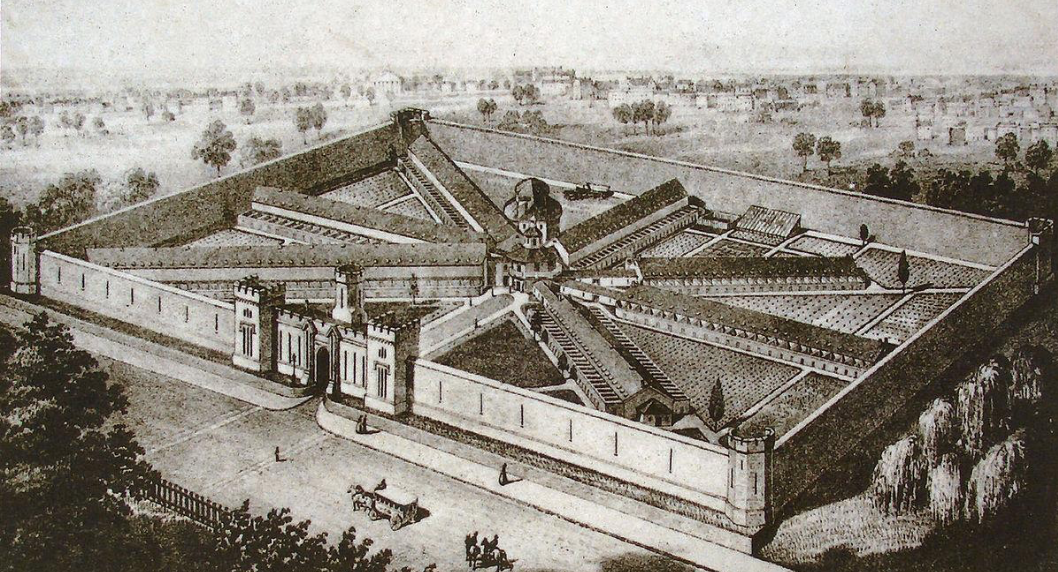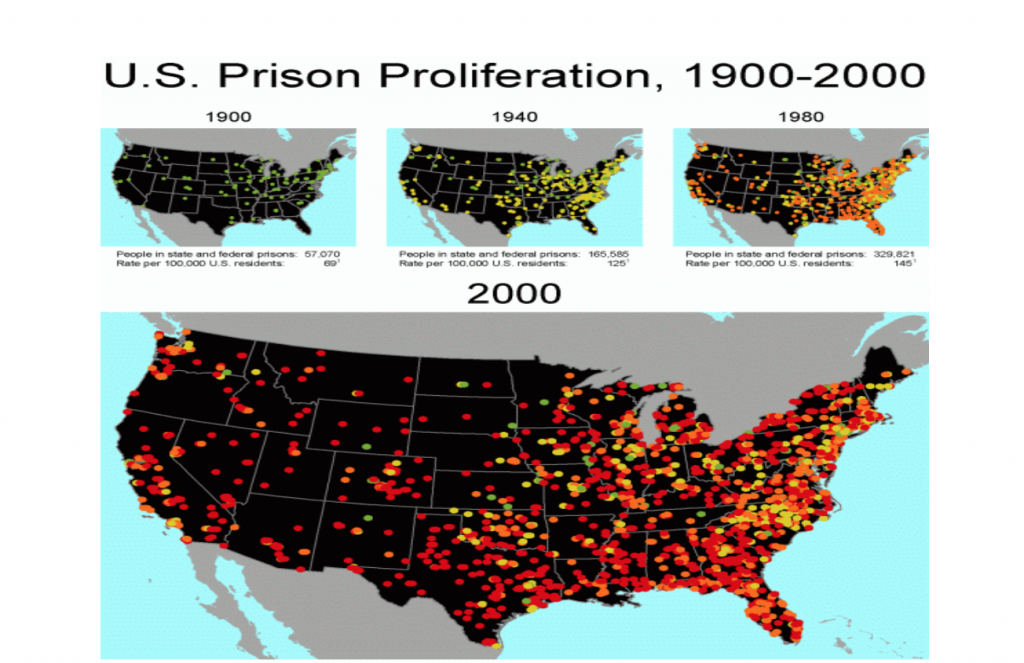8.10. Growth of Prisons in the United States
David Carter
As mentioned at the beginning of this section on jails and prisons, the Walnut Street Jail is recognized as the first built institution in the United States to house individuals. Soon after, another prison was built, the Eastern State Penitentiary (ESP), and it ran like a prison for nearly 150 years. Many of the prisons today were first built on this idea of a separate penitent prison. Many of the cells in the prison (as depicted below) would open to individual courtyards where individuals could look up and “get right with God,” hence the concept of penitentiary (penance).
Eastern State Penitentiary Design

Individuals in ESP spent much of their time in their cells, or their own reflection yards, reading the bible, praying, and always in silence. The solitude was also a way to serve penance. Shortly after the implementation of ESP, another prison was built in New York, in 1819, named the Auburn prison. This prison would become the leader of the second main prison style, the Auburn prison system. Many of the facets of the ESP were in the Auburn, save one. Auburn utilized a congregate system, which meant that (still in silence) the inmates would gather to do tasks or work.
Prison Growth in the United States

This concept of labor eventually replaced the ideals of constant solitude. The congregate system took hold as the dominant model for many prisons, and many states began to model their prisons on the Auburn prison. Notably, Auburn was also the prison where the first death by electric chair was executed in 1890. Today, there are roughly 1,700 State or municipal prisons in the United States. As the images demonstrate, it is clear that many of the prisons in the U.S. are built more recently.

